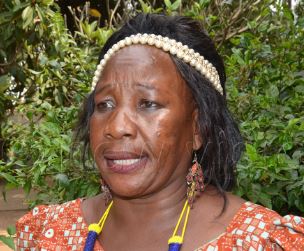The Women Bloc of South Sudan on Thursday expressed concern over the lack of participation of some parties at the Tumaini Initiative in Kenya being mediated by the Government of Kenya between the Government of South Sudan and opposition groups that did not sign the 2018 peace agreement.
Speaking during the 36th Reconstituted Joint Monitoring and Evaluation Commission (RJMEC) monthly plenary meeting in Juba, Norah Zangabeyo, the representative of the Women Bloc at the Commission, called on the African Union (AU) to include all parties to the conflict in South Sudan in the talks for viable peace.
“We welcome the Nairobi Talks but also we hear that some groups are not attending the Nairobi discussions and this is giving us a lot of worries,” she stated. “We do not know what AU is doing about it. How can these people, especially women, come back to the talks” We (women) are tired because we have suffered enough from running, killings and displacement.”
Zangabeyo also raised an alarm about violence in Western Equatoria State, saying people are not farming and that this will lead to food insecurity.
“Communal fighting erupted, especially in Western Equatoria State, and people cannot access their farms to cultivate as usual and this is going to bring an outbreak of hunger in the area,” she warned and added: “With all these conflicts across the country, there is no accountability, people are suffering and people are silent.”
For her part, Florence Agiba, the youth representative to the R-JMEC, highlighted the lack of progress in the implementation of the security arrangements as stipulated in the peace agreement amidst rising violence. She however said recent developments have been encouraging as the country witnessed some positive efforts including deployment of some of the Necessary Unified Forces and plans to kick start phase two of the unification of forces.
“Significant challenges remain like renewed violence in many parts of the country including Abyei, Warrap, Unity, and Upper Nile states among others, delays in payment of soldiers’ and civil servants’ salary arrears, inflation, a worsening humanitarian crisis exacerbated by natural disasters and the influx of refugees and returnees as a result of the Sudan conflict and internal displacement causing serious challenges to the transition,” she stressed. “As youth, we are particularly concerned about the economic hardships and the rising cost of living coupled with the high unemployment rate are major concerns for us. We demand immediate action to cushion the public from the high prices of goods and services.”
Agiba added: “We urge for policies that promote quality education, vocational training, and job creation to create more opportunities that empower the youth and promote resilience.”




